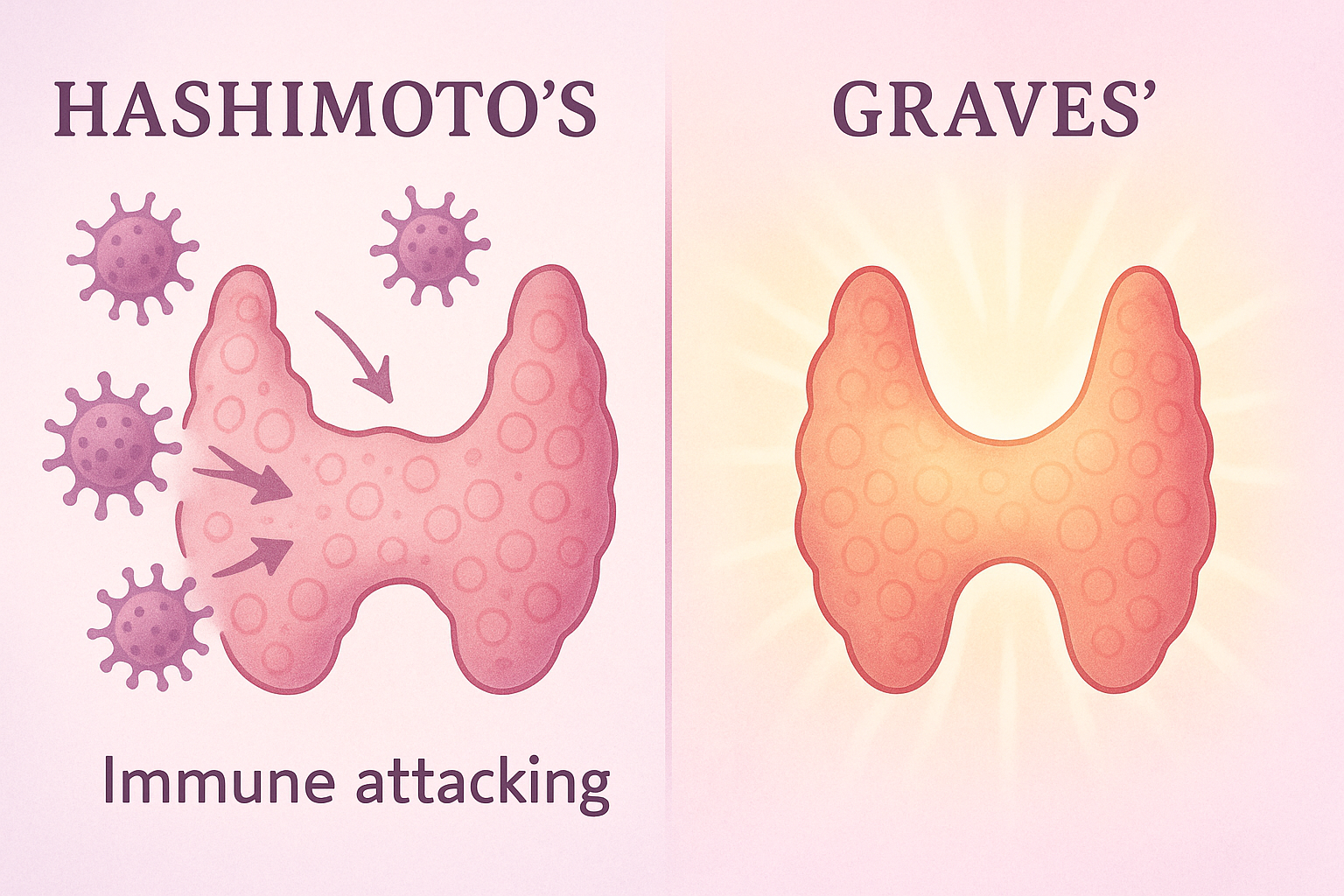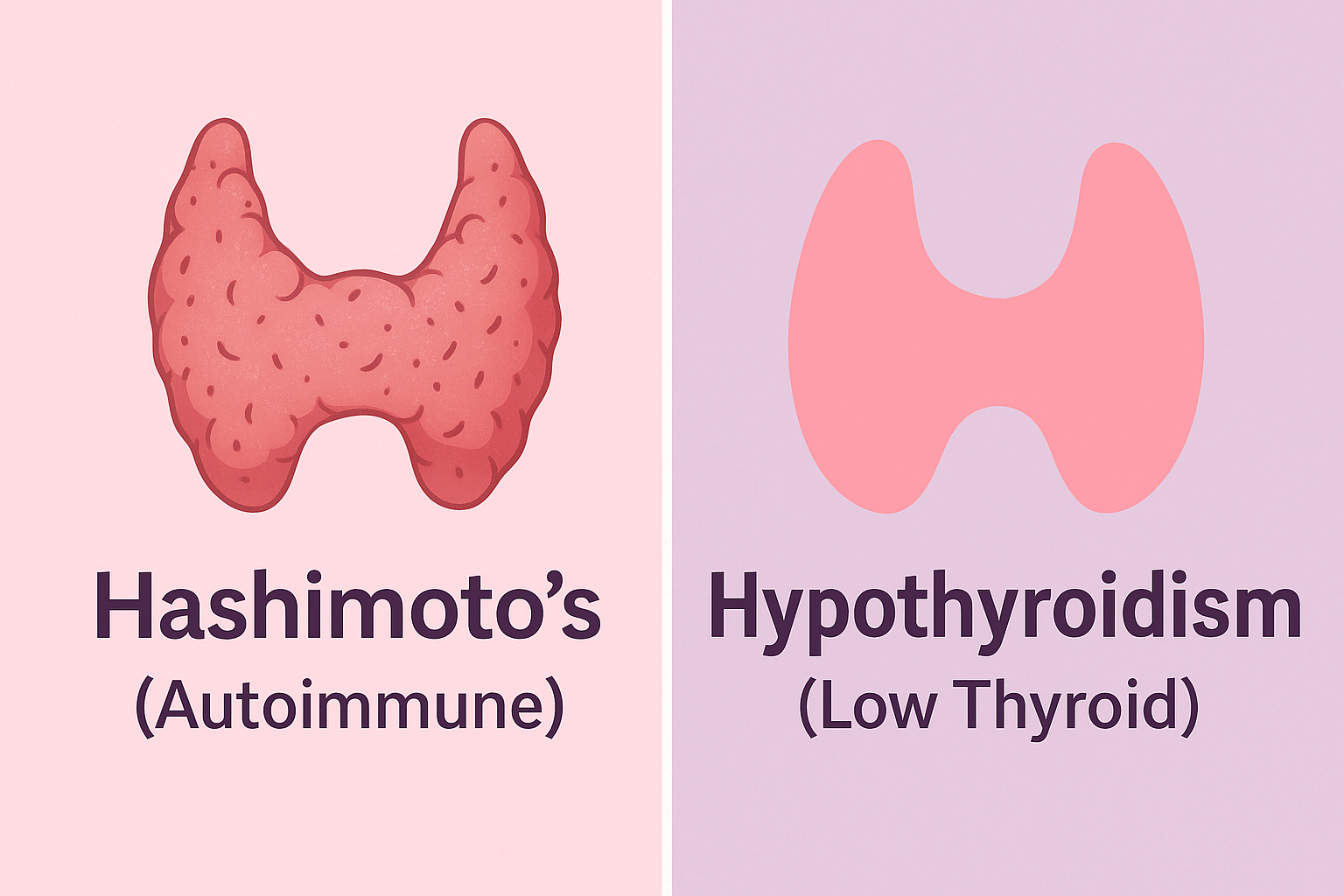Introduction
When you’re struggling with thyroid issues — whether it’s fatigue, weight gain, or mood swings — exercise might feel like the last thing you want to do.
But the right kind of physical activity can actually help balance thyroid hormones, boost energy, and improve overall well-being.
This isn’t about pushing yourself harder — it’s about exercising smarter.
In this guide, you’ll discover safe and effective exercise tips tailored for women managing hypothyroidism, hyperthyroidism, or simply looking to support a healthy thyroid naturally.
💪 1. Start Slow — Then Build Up Gradually
If your thyroid is underactive, your energy levels and recovery time may be lower than usual.
Jumping into intense workouts too quickly can stress your adrenal glands and make fatigue worse.
👉 Begin with gentle activities like walking, stretching, or yoga. Gradually increase duration and intensity as your stamina improves.
To learn more about adrenal connection, read Balancing Thyroid and Adrenal Fatigue Naturally.
🚶♀️ 2. Prioritize Daily Movement Over Intense Bursts
You don’t need long gym sessions to improve thyroid function.
Consistent daily movement — such as brisk walking, swimming, cycling, or light strength training — helps regulate metabolism and improve T3 and T4 conversion.
👉 Aim for 30 minutes a day, even if broken into short sessions. Consistency helps your thyroid respond more efficiently to hormonal cues.
🧘♀️ 3. Incorporate Yoga for Hormonal Balance
Yoga is one of the best exercises for thyroid health because it reduces stress, improves circulation, and stimulates the thyroid gland naturally.
Certain poses like the Shoulder Stand (Sarvangasana), Fish Pose (Matsyasana), and Bridge Pose (Setu Bandhasana) gently massage the neck area, enhancing thyroid function.
👉 Combine yoga with mindfulness or deep breathing to calm the nervous system and lower cortisol levels — a key hormone that affects thyroid performance.
For deeper insight into the stress connection, see How Stress Impacts Your Thyroid.
🏋️ 4. Strength Training to Boost Metabolism
Women with hypothyroidism often experience slower metabolism and muscle loss.
Incorporating light-to-moderate resistance training (bodyweight, resistance bands, or weights) increases lean muscle mass, which helps your body burn more calories even at rest.
👉 Start with 2–3 sessions per week focusing on large muscle groups — squats, lunges, and core exercises — while ensuring proper recovery between sessions.
🌿 5. Avoid Overtraining (Especially with Low Thyroid Function)
Pushing too hard for too long can backfire. Overtraining increases cortisol, a stress hormone that can suppress thyroid hormone production.
Symptoms of overtraining include exhaustion, sleep issues, irritability, and stubborn weight gain.
👉 Listen to your body — rest days are as important as workout days. Pair exercise with proper nutrition like those found in The Best Thyroid-Friendly Diet for Women.
💧 6. Stay Hydrated and Replenish Electrolytes
Thyroid hormones influence your metabolism and body temperature regulation.
If you’re dehydrated, your energy levels drop, and detox pathways slow down, making it harder for your thyroid to perform optimally.
👉 Drink plenty of water, and consider adding electrolytes (magnesium, potassium, sodium) especially after sweating.
Check how certain minerals affect thyroid health in 10 Essential Vitamins and Minerals for a Healthy Thyroid.
💤 7. Exercise Earlier in the Day
Morning workouts can naturally activate your metabolism and help regulate your circadian rhythm — both linked to thyroid hormone cycles.
Exercising too late may interfere with sleep, which is vital for hormonal recovery.
👉 For complementary morning strategies, explore Morning Habits That Support a Healthy Thyroid.
🧘♂️ 8. Combine Movement with Mindfulness
Chronic stress keeps your body in “fight or flight” mode, which can suppress thyroid and reproductive hormones.
Integrating mindfulness practices — meditation, slow breathing, or even walking in nature — reduces cortisol and supports overall endocrine balance.
👉 Pair these practices with adaptogenic herbs to enhance resilience. Learn how in How Adaptogens Support Thyroid Function.
🩺 9. Monitor How Exercise Affects Your Symptoms
Every woman’s thyroid journey is unique.
Keep a simple exercise log and note how your body feels — energy, sleep, weight, and mood. Adjust intensity based on how your thyroid responds.
👉 If fatigue persists, speak with your healthcare provider about possible nutrient deficiencies or imbalanced T3/T4 levels.
🌸 10. Support Exercise with Proper Nutrition and Supplements
Movement works best when paired with proper fuel.
A diet rich in selenium, zinc, iodine, and B vitamins supports thyroid hormone synthesis and muscle recovery.
Adding a natural thyroid support supplement may also help enhance results.
👉 For example, read the Thyrafemme Review: Benefits, Ingredients & Real Results to see how targeted nutrients can complement an active lifestyle.
⚖️ Final Thoughts
Exercise is not just about burning calories — it’s about restoring balance.
When done mindfully, it becomes one of the most powerful tools for supporting thyroid health, improving energy, and stabilizing mood.
Remember: consistency + recovery = hormone harmony.
Start slow, stay steady, and let movement become medicine for your thyroid and mind.
🔹 10 FAQs About Exercise and Thyroid Health
- Can exercise help improve thyroid function?
Yes, regular moderate exercise can boost metabolism, reduce stress hormones, and enhance thyroid performance. - What exercises are best for hypothyroidism?
Walking, yoga, swimming, and light strength training are ideal. - Should I avoid intense workouts if I have thyroid issues?
Yes, excessive high-intensity exercise may elevate cortisol and suppress thyroid function. - How often should I work out with thyroid problems?
Aim for 4–5 days per week of light-to-moderate activity with rest days in between. - Does exercise help with thyroid-related weight gain?
Absolutely — especially when combined with resistance training and a balanced diet. - Can yoga help with thyroid problems?
Yes, yoga reduces stress and includes poses that stimulate thyroid activity. - Is it normal to feel tired after exercise with hypothyroidism?
Some fatigue is normal, but extreme tiredness signals overexertion — scale back intensity. - Does exercise affect T3 and T4 levels?
Regular activity can improve T4-to-T3 conversion and support hormone regulation. - Can exercise reduce thyroid antibodies in Hashimoto’s disease?
Yes, consistent, moderate exercise reduces inflammation, which may lower antibody levels. - Should I exercise if I’m on thyroid medication?
Yes, but consult your doctor to ensure your hormone levels are stable and safe for physical activity.











